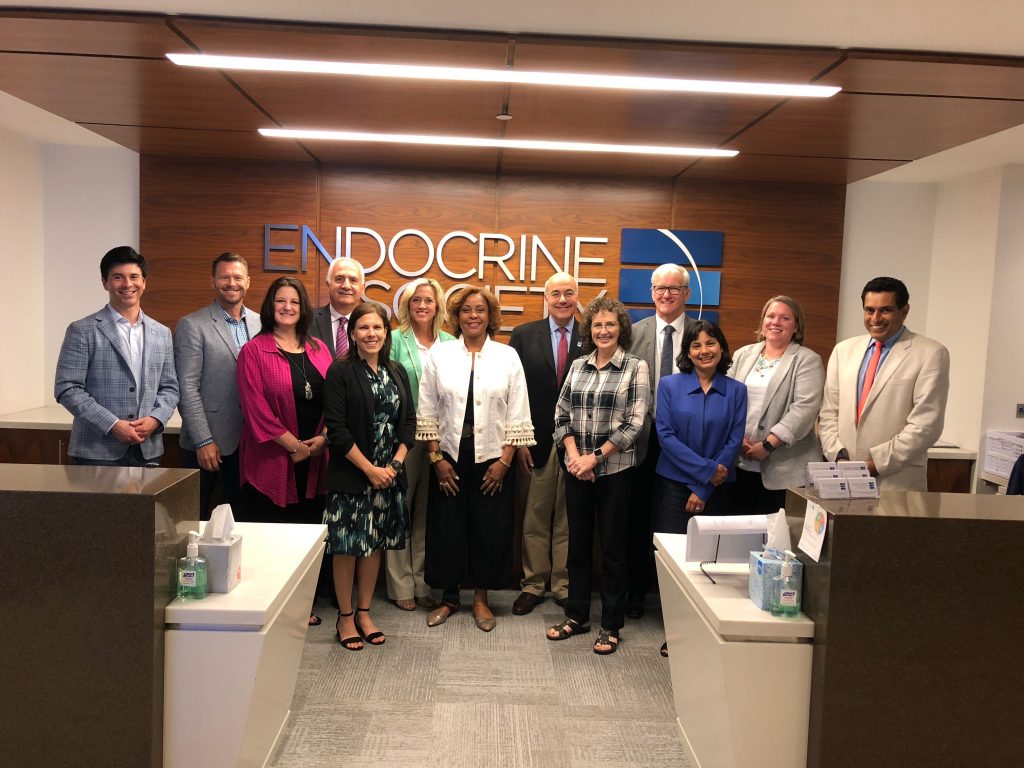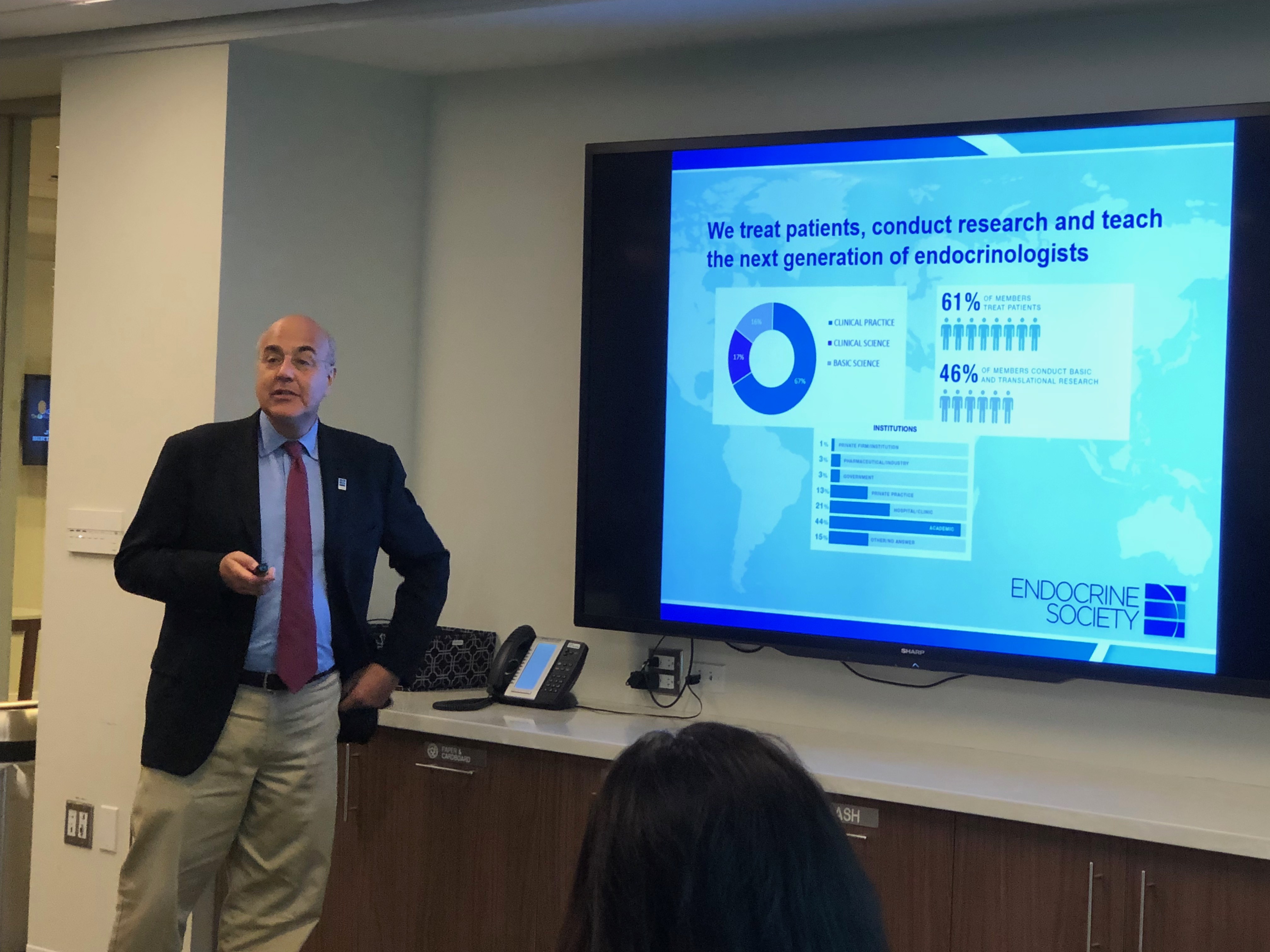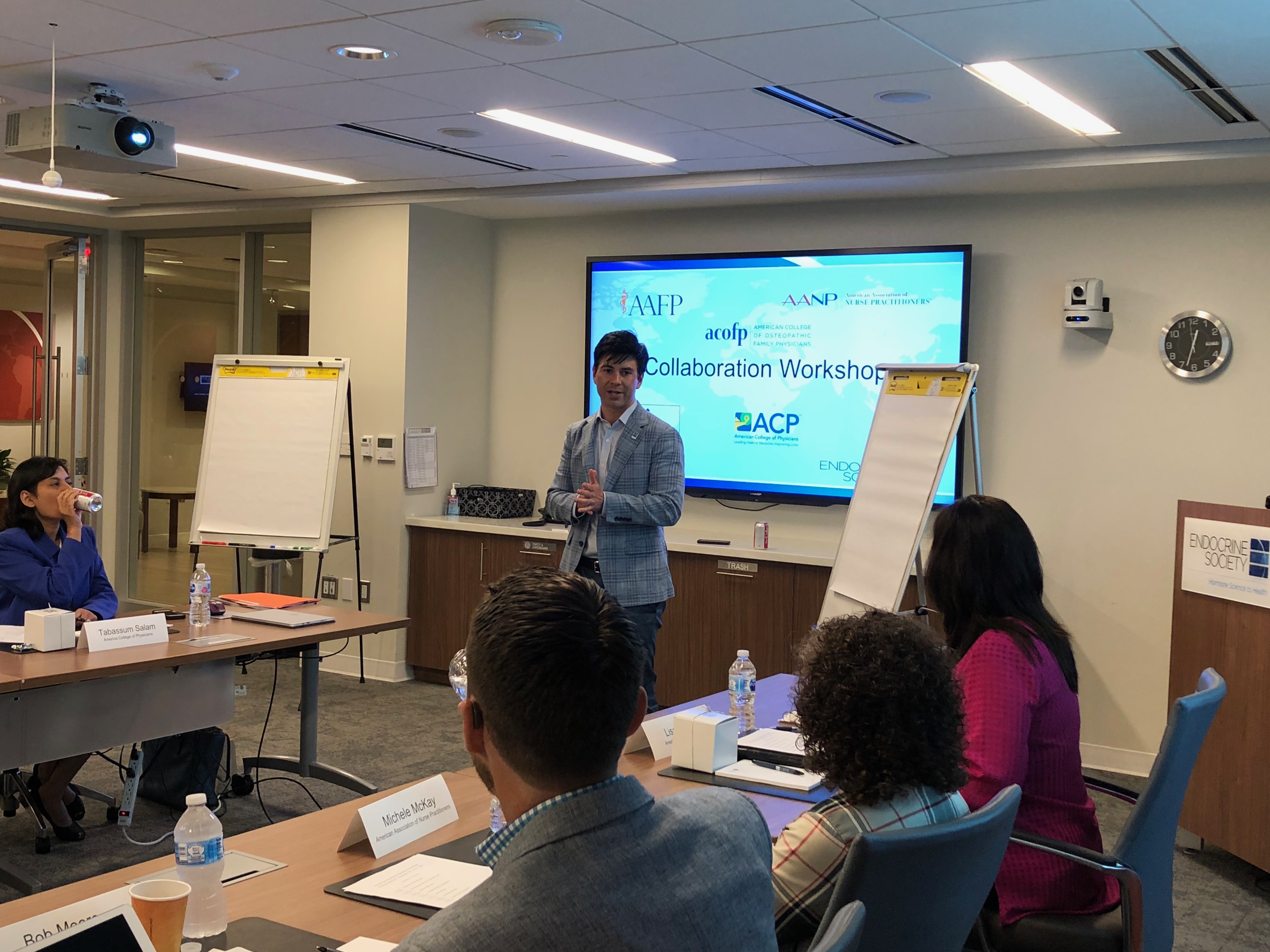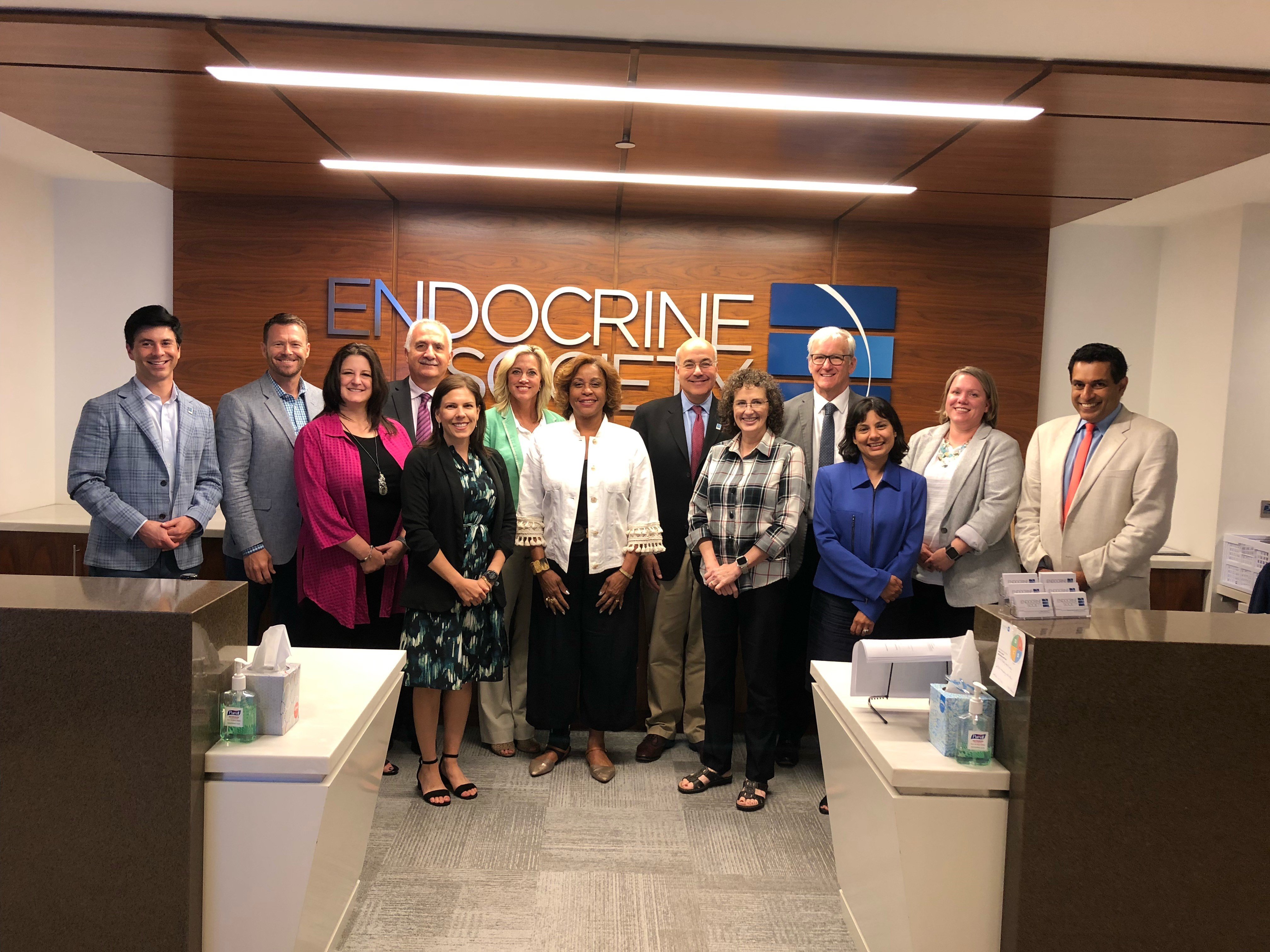
The Endocrine Society last Wednesday hosted stakeholders representing each of the nation’s major primary care associations for a roundtable aimed at identifying the best ways to collaborate – sharing resources and supporting one another in order to improve patient care.
Representatives from six medical associations – the American Academy of Family Physicians (AAFP), the American Association of Nurse Practitioners (AANP), the American Academy of Physician Assistants (AAPA), the American College of Osteopathic Family Physicians (ACOFP), the American College of Physicians (ACP), and the Endocrine Society – presented their organizations’ educational priorities and discussed working together to benefit patients and physicians alike.
Collaboration is a priority for the Endocrine Society, given how widespread endocrine disease is. Diabetes and obesity rates continue to climb. There are only 7,200 endocrinologists in the United States, and not all of those are practicing full time, and as the Society’s chief professional and clinical affairs officer Robert Lash, MD, said at the meeting, endocrine disease is too big a problem for any one group. Endocrinologists do a surprising amount of primary care, and vice versa. “However, collaboration is at the core of good clinical care,” Lash says. “There’s no way that 7,200 endocrinologists can care for the 30 million people with diabetes or the 78 million people with obesity. That’s why it’s so important for us to work with our colleagues in primary care. Each of our groups is doing great work and the opportunity to share it with each other is an important first step in developing meaningful collaborations.”

Over the course of the day, it became clear just how similar each association’s goals were to one another, from focusing on physicians’ well-being and avoiding burnout to reducing redundancy and even conflicting information in guidelines. Everyone agreed there are simply too many guidelines circulating, and as Robert Deluca, DO, president of ACOFP, pointed out, in order to keep up to date on the literature just on diabetes, it would take a physician as many as 28 hours of reading a day. Meaningful collaboration would improve the quality of education and practice and help unify the many voices of internal medicine and its subspecialties.
“The willingness of the leading primary care associations to engage with the Endocrine Society in a conversation about collaboration and to commit to continue the dialogue is a great first step towards what we hope will lead to tangible outcomes that benefit all our members and the patients they serve.” – Michel Farhat, PhD, the Endocrine Society’s chief strategic partnerships officer
After the presentations, the representatives workshopped ideas for collaboration, starting even with the simple question of why collaborate in the first place. All agreed that they can achieve more together, and they can even change the course of disease through collaborative efforts. “It was a unifying—and energizing—opportunity to connect with other healthcare leaders who are equally invested in tackling the pervasive endocrine-related diseases and conditions of our modern era,” says Christopher Urena, MBA, CAE, the Endocrine Society’s chief learning officer. “Together, we explored provocative moonshot goals, pragmatic near-term approaches, and everything in-between. Most importantly, we’re committed to continuing the dialog, and ultimately want to architect a pathway towards progress.”

Some moonshot goals included shifting the paradigm in patient care – fewer patients with comorbidities and better outcomes – true patient-centered care, decluttering information in the literature by again reducing the number of guidelines (associations could co-publish guidelines rather than endorsing each other’s guidelines), and even working to make sure physicians get home at a decent hour each day. But all agreed that for now, even something as simple as publishing an infographic could be a foundation on which to build. From there, associations could form a coalition and compile the top resources and survey data from each organization.
The objective of this roundtable was to understand collectively, in the primary care environment, where the gaps are. But the representatives were aware of the pitfalls of these kinds of meetings, namely that participants often go home and get busy with other things and fall out of touch, so it’s necessary to stay connected to continue the dialogue. Still, all agreed that collaboration is needed to address gaps in patient care and physician well-being.
The roundtable itself was the beginning of an important conversation; just by attending the meeting at the Endocrine Society’s headquarters in Washington, DC, these associations’ representatives took a step toward improving healthcare. “The willingness of the leading primary care associations to engage with the Endocrine Society in a conversation about collaboration and to commit to continue the dialogue is a great first step towards what we hope will lead to tangible outcomes that benefit all our members and the patients they serve,” says Michel Farhat, PhD, the Endocrine Society’s chief strategic partnerships officer.


